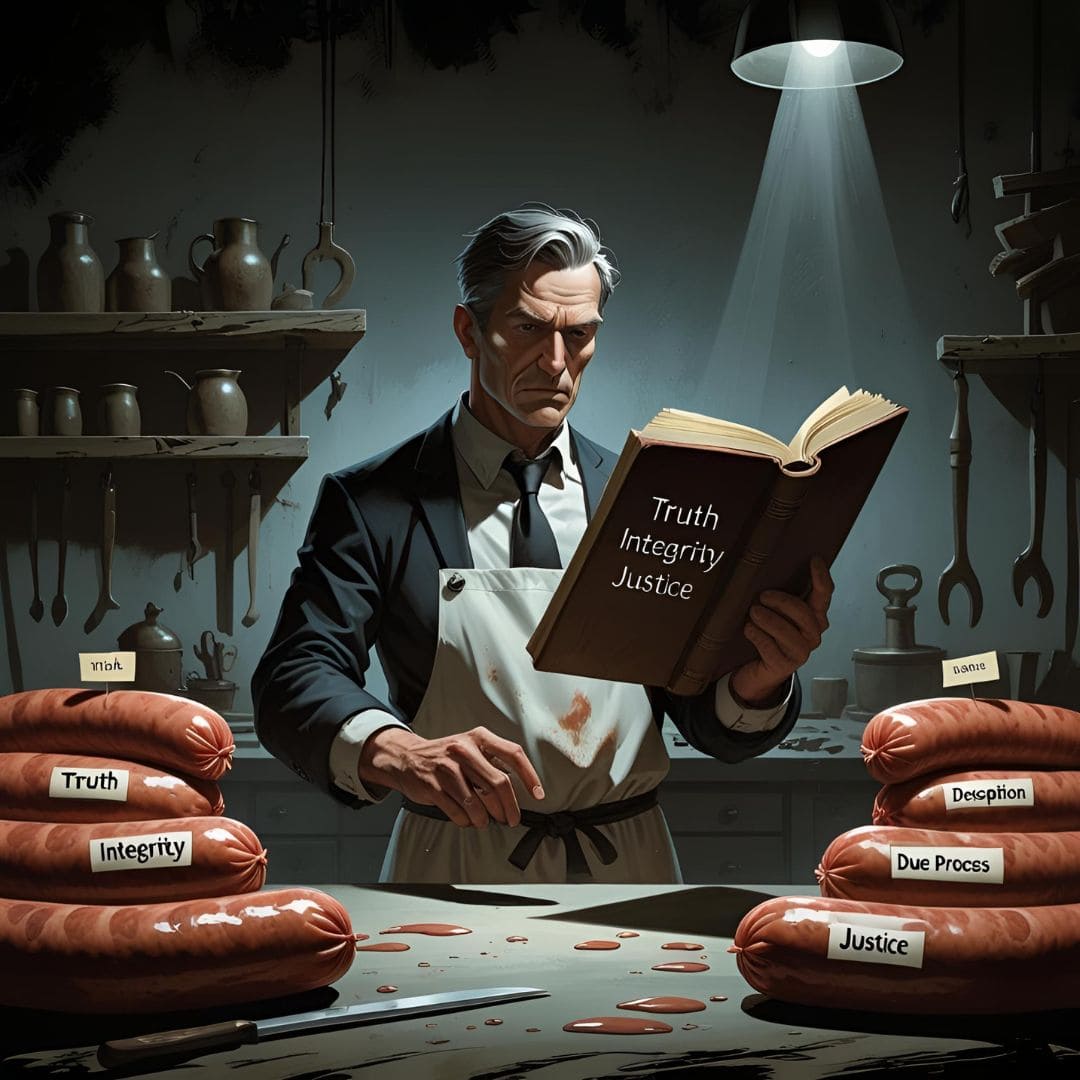
Sausage Maker’s Dilemma: When Lawyer Marketing Turns Unethical
Introduction: The Virtual Sausage Maker
When lawyers venture into internet marketing for their virtual law practices, they sometimes fall into the classic “sausage maker’s dilemma”—creating an attractive package that conceals the messy, unsightly behind-the-scenes reality. In June, the Virginia state bar issued a public reprimand against one such lawyer who crossed the ethical line, offering insight into how marketing can turn misleading—and why honesty must come first.
False Illusions: Marketing That Misrepresents
The Virginia bar took aim at several deceptive practices:
- “National Law Firm” façade.
The lawyer claimed to lead a multi‑lawyer, multi‑office practice in Virginia, Maryland, Massachusetts—even India—when in reality he worked alone, contracting independent attorneys on commission. - Specialized expertise by each “associate.”
His website professed each attorney focused exclusively on one legal area. Truthfully, each took on generalist work. - Multiple Virginia offices myth.
He claimed six offices, but five were just unstaffed executive suites available by reservation. That’s an illusion you can’t trust.
Sausage Maker Ethics: You Can’t Hide the Grind
Bob Ambrogi, no foe of promotion, argues that while the bar’s public reprimand shows leniency, it shouldn’t inspire others to obfuscate their operations. As he puts it:
“Virtual” should not mean pretending to be something you’re not. Above all else, lawyers have a duty of honesty. Their marketing should conform to that.
The sausage maker may choose spices and seasonings, but not hide the meat. If virtual lawyers want clients to trust their “product,” they must show what’s real—not package thin gruel.
Nuance vs. Deception: Where’s the Line?
Virtual-practice advocate Stephanie Kimbro also calls out dishonest solo-marketing. But she raises a thorny question:
Where do we draw the line between what’s misleading and what’s “giving more info than people need to know”?
Let’s unpack that nuance. At what point does honesty become oversharing, and where does strategic omission morph into deception?
Another Article : The Court Decision That Killed Privacy
The Ethical Recipe: What a Lawyer Must Disclose
Stephanie wonders if it’s important for clients to know whether:
- The address is a fully staffed brick-and-mortar office, or a mail-forwarding service.
- You have a full-time receptionist or share one by the hour.
- Your “firm” is really just you operating from a home office.
If pride in your practice depends on pretending to be larger than you are, then you risk crossing into misleading territory.
Sausage Maker’s Confession: The Ugly Truth
Here’s the kicker—if telling the truth about your operation makes you sound less appealing, maybe the fix isn’t a gloss over marketing, but a switch in your actual business model. In other words:
Make your sausage taste good before you apply fancy labels.
The remedy to misleading marketing isn’t clever wording, it’s substance.
When Honesty Isn’t Optional
Here’s the bright line: If your stall sounds bigger than your setup, you’re lying.
- Claiming a Baltimore office when you only rent a Regus address for two hours? Misleading.
- Promising trial experience without ever having tried a case? Dishonest.
When marketing hinges on exaggeration, it’s not a nuance, it’s a falsehood.
The Sausage Maker’s Principles in Advertising
1. Truth First
If the reality makes you cringe, change it—don’t hide it.
2. No Creating False Impressions
Clients researching online deserve clarity—not creative illusions.
3. Ingredient Transparency
Don’t add fluff like “national coverage” or “multidisciplinary teams” unless you can credibly back it up.
4. Own Your Sausage
If you’re a solo lawyer working from home, say so. The modesty is honorable. It’s better to truthfully attract clients who appreciate your style than mislead and be caught.
Final Thoughts: The Sausage Maker’s Upfront Recipe
The Virginia bar’s reprimand wasn’t about limiting marketing creativity—it was a reminder that honesty is non‑negotiable. Marketing must reflect reality, not obscure it. If you find yourself wrestling over how much detail is “too much,” chances are your marketing started from a dishonest place.
Dishonesty isn’t marketing—it’s malpractice.
Just as a sausage maker wouldn’t conceal the meat with filler, lawyers shouldn’t hide the substance of their practice behind puffery. If your marketing relies on illusions, ask: What am I hiding?
The best defense? Build a practice worth promoting, and advertise it honestly. That’s how integrity stays intact—and trust with clients remains unbroken.
Read Also : NY Times







